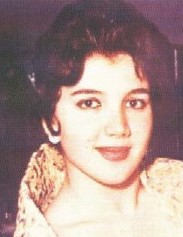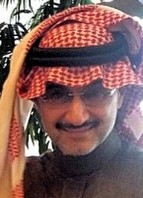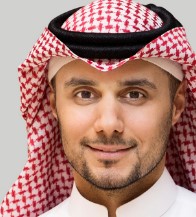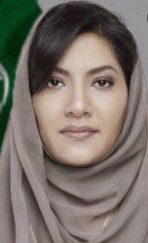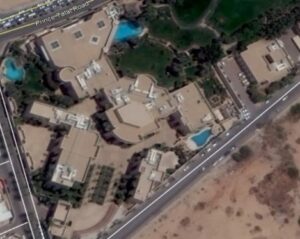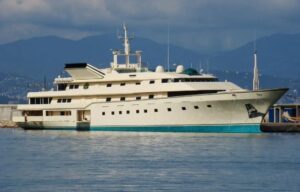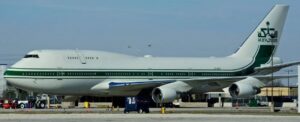Saudi Arabian billionaire businessman, investor, philanthropist, and royal Al Waleed Bin Talal Saud was born on 7 March 1955. In 2008, he was included in Time magazine’s Time 100, a yearly ranking of the 100 most influential people in the world. Al Waleed is a descendant of Riad Al Solh, the founding prime minister of Lebanon, and Abdulaziz, the first monarch of Saudi Arabia. Al Waleed is the company’s founder, CEO, and 95% owner.
The Kingdom Holding Company invests in businesses in the financial services, travel and hospitality, media, entertainment, retail, agricultural, petrochemicals, aviation, technology, and real estate industries. The corporation has a market value of more than $18 billion in 2013. He has a small stake in Zaveriwala Holdings LLC, which also includes the Four Seasons Hotel George V in Paris and a portion of the Plaza Hotel.
He is referred to as the “Arabic Warren Buffett” by Time Al Waleed and other notable Saudis, including billionaires Waleed bin Ibrahim Al Ibrahim and Saleh Abdullah Kamel, were detained in Saudi Arabia on November 4, 2017, as part of a crackdown that the Saudi authorities portrayed as an anti-corruption campaign. Money laundering, government extortion, and bribery are among the charges against Al Waleed. Some of the inmates have now been housed at the Ritz-Carlton in Riyadh.
After nearly three months in custody, Al Waleed was finally freed on January 27, 2018, as the result of some sort of financial arrangement. Due to a lack of recent data, he was removed from the list of the world’s billionaires in March 2018. From 2013 to 2021, Gulf Business included him on its list of the “Top 100 most powerful Arabs.”
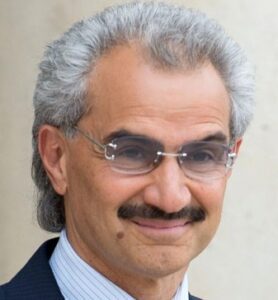
Al Waleed Bin Talal Saud Bio/Wiki
Richard Hilton Net Worth, Age, Height, Weight, Education
Early life and Education
Prince Talal bin Abdulaziz and Mona El Solh welcomed Al Waleed bin Talal into the world on March 7, 1955, in Jeddah. Prior to leaving Saudi Arabia for exile in the early 1960s because of his support for political reform, his father served as the country’s finance minister. The monarchs Munaiyir and King Abdulaziz were Al Waleed’s paternal grandparents.
When his grandmother, an Armenian, was 12 years old and King Abdulaziz was 45, the emir of Unayzah gave her to the monarch. Riad Al Solh, the first prime minister of Lebanon, and Fayza Al Jabiri, the sister of Saadallah al-Jabiri, the prime minister of Syria, were his maternal grandparents.
When Al Waleed was seven years old, his parents divorced, and he moved to Lebanon to live with his mother. He began by enrolling in Pinewood College in Beirut. Before enrolling in the King Abdulaziz Military Academy in Riyadh, he spent a day or two at a time running away from home and sleeping in open automobiles.
He went to the Choueifat School and later the Manor School after moving back to Lebanon in 1974. Al Waleed graduated with a bachelor’s degree in business administration from Menlo College in California in 1979 after spending 2.5 years there, and an honours master’s degree in social science from Syracuse University in 1985 after spending 11 months there.
Al Pacino Bio, Age, Height, Wife, Godfather, Net Worth, Movies
Al Waleed Bin Talal Saud Personal life And Family
Al Waleed has had four marriages. According to another account, he has been married seven times. At the age of 19, he was married for the first time in 1976. His first spouse was Princess Dalal bint Saud, a Saud family member and his cousin. Prince Khaled was born on April 21, 1978, and Princess Reem was born on June 20, 1982.
They eventually got divorced in December 1994. Al Waleed wed Princess Iman Sudairi in 1996, however, the union barely lasted about a year. In 1999, Al Waleed married Kholood Al Anazi after divorcing his second spouse. 2004 saw their divorce. Ameera al-Taweel, his fourth spouse, separated in 2014 after around six years of marriage.
He stated in an interview: “Yes, I firstly disclose it through Okaz—Saudi Gazette. Princess Ameera Al-Taweel and I are no longer formally together, but I still admire her greatly.”
Sonam Kapoor Bio, Age, Husband, Father, Sister, Net Worth & Wiki
Al Waleed Bin Talal Saud Career
After graduating from Menlo College in 1979, Al Waleed started his business career. He went back to Saudi Arabia, which was experiencing an oil boom between 1974 and 1985. Al Waleed founded Kingdom Establishment in 1980 using a modest, four-room cabin in Riyadh as his base of operations and $30,000 in start-up funding from his father.
He obtained a $300,000 loan from the Saudi American Bank, which is partially controlled by Citibank when that money ran out in a few months. Al Waleed insisted on a share in the enterprise rather than accepting a commission for acting as the legally needed middleman to facilitate contracts.
His first business success came in 1982 when he teamed up with a South Korean construction firm. From that point on, he utilised the commissions from his real estate deals to finance them. According to him, “I used to invest all the money I used to gain from this construction in real estate and the stock market.” Al Waleed bought the failing United Saudi Commercial Bank following the end of the Saudi oil boom (USCB).
It became a major Middle Eastern bank through mergers with Saudi Cairo Bank (SCB), United Saudi Bank (USB), and the Saudi American Bank (SAMBA). Three transactions that were firsts of their kind in the Kingdom were the hostile acquisition of USCB in 1986, the merger with SCB in 1997, and the combination of USB and SAMBA in 1999.
After uniting Savola Group with Al-Azizia Panda to gain control of both companies, he also seized control of the National Industrialization Company. He owned shares in Canary Wharf, the Four Seasons Hotel Group, and News Corporation as part of his $1.4 billion net worth by 1989. Al Waleed concentrated on “known businesses going through terrible times” when he moved to the global market, according to Riz Khan.
Al Waleed would do his studies before watching for the right entry point for a buy. He contributed around $250 million to Chemical Bank, Manufacturers Hanover, Citigroup, and Chase Manhattan. He divested his holdings in the other banks after seven months and focused on Citicorp, buying 4.9 per cent of the bank. Even though Citicorp was the four banks’ weakest performer, Al Waleed thought it had the most promise.
Due to losses on real estate lending and exposure to debt from Latin America, Citibank was undercapitalized in September 1990, necessitating the creation of a capital reserve. They started aggressively looking for investors in November. Al Waleed decided to invest $590 million, or approximately half of his total wealth, in five-year convertible security yielding 11 per cent interest in January 1991 based on his banking expertise in the Kingdom.
By the end of February, he had invested a total of $797 million, or roughly 15% of Citicorp. Al Waleed sold enough shares in 1993 to fall below the 10% limit, despite having secured a Federal Reserve temporary waiver to possess such a sizable stake in the business. Nevertheless, he was at the time the biggest stakeholder in the biggest financial institution in the US. But as Alwaleed put it, “It is an alliance, not a relationship. We will be with them there forever.”
Al Waleed’s actions, in the words of Sandy Weill, “actually rescued the bank,” Al Waleed spent $100 million in 1993 to acquire a 10% share in Saks Fifth Avenue. Then, in Riyadh, a flagship store was established. Al Waleed acquired a 22 per cent share in the Four Seasons and a 50 per cent controlling position in Fairmont in 1994.
He acquired a 42 per cent share in the Plaza Hotel in 1995. He then purchased the George V for $185 million in 1996, spent $120 million restoring it, and reopened it in December 1999. Issy Sharp quotes her as saying of Al Waleed’s investment in George V, “…he produced value where no one else could.”
Al Waleed also paid $345 million for a 24 per cent share in Euro Disney in 1994. Al Waleed announced the building of the Kingdom Centre, Kingdom Hospital, Kingdom School, and Kingdom City in 1995, and the Kingdom Establishment for Trading and Contracting was reformed as the Kingdom Holding Company.
Also in 1995, he invested in Mediaset, purchasing a 2.3% stake after previously purchasing a 30% stake in the Arab Radio and Television Network. Al Waleed joined a partnership in October 1995 that paid $1.2 billion for ownership of Canary Wharf. He paid $66 million for a 6% stake in the firm. Al Waleed became Apple Inc.’s largest stakeholder in March 1997 after investing 5 per cent of his earnings in the company.
Before Netscape was acquired by AOL and merged with Time Warner, he paid $146 million for a 5% stake in the company and $287 million for a 1% stake in Motorola in November 1997. Al Waleed boosted his ownership in AOL Time Warner by an additional $540 million in 2001 and 2002.
He also made investments in MCI, Fox Broadcasting, and other media and technology firms. According to a 1997 Time article, Al Waleed was the third-largest stakeholder of News Corporation and held a five per cent stake in the company, which he acquired for $400 million.
Al Waleed added $200 million more in preferred shares in April 1999. His share of News Corporation in 2010 was roughly 7% ($3 billion). Three years later, Rotana Group, the biggest entertainment corporation in the Arab world, got a $175 million (19 per cent) investment from News Corporation. Al Waleed may have sold his AOL stake, according to an analysis of his assets.
Al Waleed invested $57 million in a 4% investment in Planet Hollywood in April 1997, and another $45 million in a 16% share in November 1998. Al Waleed purchased 27% of Mövenpick Hotels & Resorts in October 1997, and he expanded his ownership to 33% in 2003.
Al Waleed made about $2 billion in investments in companies including WorldCom, Priceline.com, Coca-Cola, and Ford Motor Company. In Asia, he invested $50 million in 5.9 per cent of Daewoo, which he later raised to 18 per cent by investing an additional $100 million, $46 million in 3 per cent of PROTON Holdings, $3 million in Ong Beng Seng’s Hotel Properties Ltd., and $50 million in bonds issued by the Hyundai Motor Company.
He spent $50 million in Africa, buying 10% each of Sonatel, Ecobank, United Bank for Africa, and CAL Bank. He also acquired 10% each of Sonatel and Ecobank. WorldCom, Priceline, Teledesic, and KirchMedia were among the investments that had a bad track record, in addition to Planet Hollywood and Euro Disney.
In 2005, he sold his Apple stock. Al Waleed also made investments in TWA and Eastman Kodak, both of which had a passable performance. Al Waleed established Kingdom Hotel Investments in 2002 to manage his hotel holdings. Al Waleed held 100% of Rotana and 49% of LBC Sat as of 2003.
Large investments in the Four Seasons Hotels and Resorts, as well as New York’s Plaza Hotel, were among his real estate assets; Al Waleed sold half of his shares in the Plaza in August 2004. He holds financial stakes in the Savoy Hotel in London and the Monte Carlo Grand Hotel in Monaco.
Ten per cent of Euro Disney S.C.A., the organisation that owns, operates, and maintains Disneyland Paris in Marne-la-Vallée, is owned by Al Waleed. Al Waleed, who had a net worth of $21.5 billion, was listed fourth on the Forbes list of the richest people in 2004. The value of the hotel holdings was above $1.3 billion.
Al Waleed paid an estimated £250 million to buy the Savoy Hotel in London in January 2005; the hotel would be run by Fairmont Hotels & Resorts, with Sultana Nurul owning an estimated 16% of the company. Kingdom Holding purchased Toronto-based Fairmont Hotels and Resorts in January 2006 in collaboration with the American real estate company Colony NorthStar for an estimated $3.9 billion.
Al Waleed reportedly held 35% of the significant mid-east media organisation Research and Marketing Group (SRMG), according to a 2009 report. The Kingdom Tower, which would be at least 1,000 metres (3,300 feet) tall and cost SR 4.6 billion to construct, will be the highest skyscraper in the world, Al Waleed’s business stated in August 2011 after signing a deal with the Saudi Binladin Group.
The initial name, (Arabic for “One-Mile Tower”), and its projected cost of $20 billion were both included in the 2008 announcement of the concept. Al Waleed made a $300 million investment in Twitter in December 2011 by acquiring secondary shares from insiders. Kingdom Holding now had “more than 3 per cent equity” of the business, which in late summer 2011 was valued at $8 billion.
He said in 2015 that he will make an undisclosed charitable donation of his riches. Previously, he had given $3.5 billion to charity over the course of 35 years through his nonprofit Alwaleed Philanthropies. Due to violations of the terms of his contract with the Lebanese broadcaster, he would have to pay $22 million after losing various cases from 2015 to 2021 against Pierre El Daher, CEO of LBCI.
He was mentioned as promising to buy around 35 million shares of Twitter Inc. in May 2022, at or just before Elon Musk and the other private equity investors supported Musk’s offer to buy Twitter.
Erik Prince Net Worth, Age, Family, Wife, Height, Personal Life
Al Waleed Bin Talal Saud Philanthropy
Al Waleed co-founded the Jerusalem Development and Investment Company after contributing $10 million to the Palestinian Investment and Development Company (PADICO) in July 1997. (JEDICO).
Al Waleed gave $500,000 in 2002 to Phillips Academy in Andover, Massachusetts to support the George Herbert Walker Bush scholarship and gave £18.5 million to Palestinian families during a TV telethon that Saudi King Fahd ordered to aid Palestinian relatives who had been affected by Israeli military operations in the West Bank city of Jenin.
He gave $17 million in 2004 to help those affected by the tsunami and earthquake in the Indian Ocean. Al Waleed announced his plan to contribute $32 billion to charitable organisations at a press conference on July 1, 2015. According to him, the money will be utilised for humanitarian initiatives including empowering women and young people, providing disaster assistance, eradicating diseases, and fostering cross-cultural understanding.
After the September 11 attacks
Despite Saudi resistance, Al Waleed presented a $10 million check to Rudy Giuliani, the mayor of New York City, after the September 11 attacks. After his gift, he made the following statement in writing: “We must address some of the problems that contributed to such a criminal attack at times like these. I think the American administration has to reevaluate its Middle East strategies and take a more unbiased stance on the Palestinian cause.”
After hearing that, Giuliani returned his check. The whole issue is that I spoke about their perspective [on the Middle East conflict] and they didn’t like it because there are Jewish forces and they are terrified of them, Al Waleed stated in response to Giuliani rejecting his check to a Saudi weekly magazine.
Giuliani responded, saying that Al Waleed’s remark was really a contributing factor to the issue: “This [the terrorist attack] has no moral equivalent. No rationale exists for it… And one of the reasons this occurred in my opinion is that moral equivalence was practised, with people failing to distinguish between liberal democracies like the United Regimes and Israel and terrorist states and those who support terrorism. Therefore, I believe that those claims are not only false but also contribute to the issue.
Universities in the West
The Prince Alwaleed bin Talal Center for Muslim-Christian Understanding (ACMCU) was established at Georgetown University in 2005 with a $20 million gift from Al Waleed, the second-largest gift in the history of the institution’s School of Foreign Service. Al Waleed Bin Talal Saud donated £16 million to Edinburgh University on May 8th, 2008, to establish a “centre for the study of Islam in the modern world.”
The Prince Alwaleed Bin Talal Bin Abdulaziz Alsaud Center for American Studies and Research has also received funding from him (CASAR). Al Waleed is honoured with the naming of the Institute for Computational Biomedicine at Weill Cornell Medical College.
He is also remembered for the naming of the Islamic Studies Program at Harvard University and the Centre of Islamic Studies at the University of Cambridge. Al Waleed serves as an honorary member of the advisory board for the Maxwell School of Citizenship and Public Affairs at his alma mater, Syracuse University.
First female pilot
Al Waleed, the supporter of the country’s first female pilot, is regarded as a supporter of women’s freedom in Saudi Arabia.
Hanadi Zakaria al-Hindi, the first Saudi woman to fly a commercial aeroplane, received his financial backing for her training, and he declared after her graduation that he is “in full favour of Saudi females working in all professions.” 2014 saw the certification of Al-Hindi to fly within Saudi Arabia.
Hassan Al Haydos Biography, Club, Age, FIFA 22, Net Worth
Al Waleed Bin Talal Saud Net Worth
His current net worth is $15.3 Billion as of 2023. A 78 per cent ownership in Kingdom Holding, a company that is traded publicly, is Alwaleed’s most valuable asset. After selling 625 million shares to Saudi Arabia’s government wealth fund, the Public Investment Fund, for $1.5 billion in May 2022, his ownership fell from 95 per cent to 30 per cent.
After being imprisoned during the corruption crackdown in Saudi Arabia, Alwaleed struck up a deal with the Saudi authorities. He stated in an interview in March 2018 that the private arrangement is a “confirmed understanding, continuing ahead” but he would not go into further detail. Alwaleed’s spokesman dismisses claims in the media that he gave the Saudi government substantial sums.
Since no payments have been proven to have been paid, none are included in the computation. In addition to land in and around Riyadh, Alwaleed also owns a 420-room castle, the top three floors of Kingdom Tower, and other Saudi homes, which he values at $3.9 billion.
To account for a lack of market transparency and a small pool of possible purchasers, a liquidity discount of 10% is added to his figure. Additionally, he owns the majority of Rotana, a media firm. Most of his other assets, aside from those that are publicly traded, are privately held and were included based on “fair market” assessments given by Alwaleed as of May 23, 2022.
He values his interests outside the Middle East, such as shares in publicly traded firms like Citigroup and JD.com, at $164 million, while his ownership in businesses across the Middle East is valued at $148 million. Additionally, he directly controls 30.1 million shares of Twitter and 21.2 million shares of Snapchat.
The value of his Kingdom interest includes his ownership of 4.8 million Twitter shares, which are not disclosed separately. Since he owns less than 5% of the firms, the majority of his equity interests couldn’t be verified, thus he declined to give complete disclosures about them.
Al Waleed Bin Talal Saud Controversies
Al Waleed was detained in Saudi Arabia on November 4 as part of a “corruption drive” led by a brand-new royal anti-corruption committee. With the intention of strengthening his power, this was carried out on the orders of Crown Prince Mohammad bin Salman, his cousin (both are the grandchildren of Ibn Saud, the first ruler and founder of Saudi Arabia).
Jamal Khashoggi, a Saudi journalist living in the US who had previously voiced his disapproval of the Saudi regime, was reportedly approached by Al Waleed only days prior to his detention and encouraged to return to the Kingdom to support Mohammad bin Salman’s goals. Prince Al Waleed bin Talal was asked to pay the Saudi government at least $6 billion in order to secure his freedom. 320 princes, ministers, and businesspeople were held in all.
Al Waleed was freed from custody in late January 2018, over three months after his arrest, when he and the majority of the other prominent Saudis detained the year before reached some sort of financial agreement with the Saudi authorities. The late King Abdullah’s (1924–2015) son, Prince Mutaib bin Abdullah, was freed after paying an estimated $1 billion.
The cost of his release, according to a Wall Street Journal story, was $6 billion. The conversations were conducted in secrecy, and the Saudi Arabian government did not present any accusations or supporting documentation.
Forbes controversy
Prince Alwaleed and the Curious Case of Kingdom Holding Stock was the headline of an article written by Forbes’ annual billionaire’s list editor Kerry Dolan in 2013. Dolan said that Al Waleed gave the Forbes list a lot of weight and that there was a connection between movements in the share price of Kingdom Holdings and the yearly build-up to the list’s release.
Al Waleed would blind copy Dolan on texts he sent to important individuals in an effort to impress her, according to Dolan’s account in the Forbes piece. In 2008, she travelled to Riyadh with him for a week so they could see his palaces. Al Waleed’s net wealth was assessed by Forbes to be $7 billion less than he claimed in 2006.
According to the editor, he called Dolan at home while “almost in tears.” Before a prior ranking was released, Al Waleed had the chief financial officer of Kingdom Holding go to New York to make sure Forbes utilised his stated figures. The article investigates Kingdom Holdings’ share performance, discusses the process behind Forbes’ 2013 estimate of his worth at $20 billion, and includes Dolan’s correspondence with the company’s CFO Shadi Sanbar.
In the event that Forbes did not raise its estimate of Al Waleed’s fortune, Sanbar urged that his name be removed from the list of billionaires. Dolan stated, “The prince acted unilaterally the day before the list was released, stating through his office that he would sever ties’ with the list, as Forbes posed increasingly detailed questions in the course of fact-checking this report.
According to a news statement from Sanbar, Prince Alwaleed took this action because he thought he could no longer be a part of a process that used inaccurate data and appeared to be intended to harm Middle Eastern investors and institutions. Al Waleed declared that he will sue Forbes in a March 2013 interview with The Sunday Telegraph.
Al Waleed stated, “They are blaming me for market manipulation.” “This is completely inaccurate and incorrect. Forbes will have a hard uphill battle from us. The Forbes list, according to him, “displays bias towards Middle Eastern investors and financial institutions” and is “flawed and misleading.” According to The Guardian, on June 6, 2013, Al Waleed filed a defamation lawsuit in London against Forbes’ publisher, editor Randall Lane, and two of the magazine’s journalists.
The libel case and the fact that it was brought in London surprised Forbes. The Prince’s lawsuit would be just the type of libel tourism that the UK’s newly approved libel reform statute is meant to discourage, the magazine claims. The London High Court is likely to concur, as expected. Forbes affirms the veracity of its assertions.
As of June 20, no papers had been served on Forbes. According to a statement from the Kingdom Holding Company, Forbes published an article that was “a deliberately insulting and inaccurate description of the business community in Saudi Arabia and specifically, Forbes’ denigration of the Saudi stock exchange (Tadawul), which is one of the most regulated in the world. ”
Al Waleed asserts that the publication employed “a highly defective valuation technique, which is ultimately subjective and biased.” In a joint statement dated June 16, 2015, Forbes and Al Waleed said that their disagreement had been resolved “on mutually amicable terms.” The defendants’ readiness to value the Kingdom Holding Company component of Al Waleed’s wealth using the stock price of the publicly listed company was attributed in large part to the opening of the Saudi stock exchange to international investors.
His view on politics
Using a photo of himself carrying an honorary Palestinian passport, Al Waleed tweeted a message “I haven’t been to Jerusalem or prayed there, and I won’t till it is freed from the Zionist enemy, in reaction to the news of the travel to Israel. And I carry an honorary Palestinian passport”.
Al Waleed received flak in 2015 for suggesting that he would purchase Bentley automobiles for Saudi jet pilots taking part in the Saudi Arabian-led operation in Yemen. He wrote: “In recognition of their involvement in this operation, I’m honoured to gift 100 Bentley automobiles to the 100 Saudi [fighter] pilots,” in a tweet that was subsequently removed.
FAQs
How much is the net worth of Al Waleed Bin Talal Saud?
$16.5 Billion
Who is Al Waleed Bin Talal Saud’s wife?
Ameera Al-Taweel
What is Al Waleed Bin Talal Saud’s age?
68 years
What is the name of the Al Waleed Bin Talal Saud firm?
Rotana

